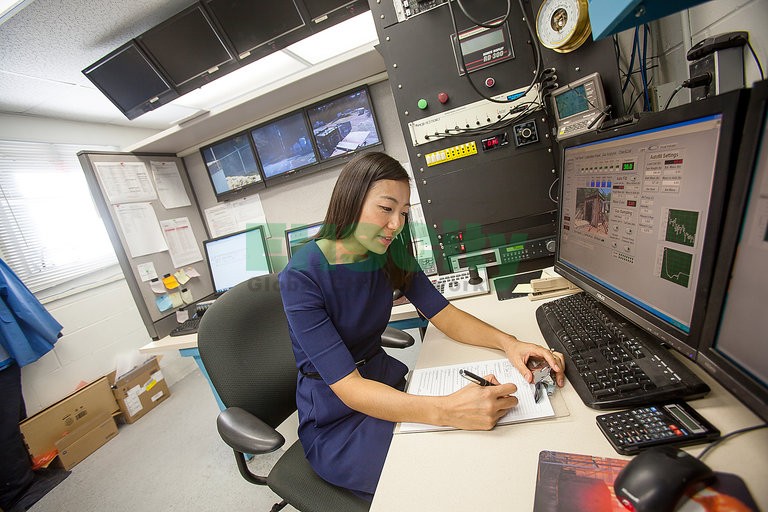
Jenny Chao, 40, is a senior lead research scientist at FM Global.
Q. What is FM Global, and what do you do there?
A. We’re a commercial property insurance company. My area is explosions that affect industries including chemical, petrochemical, food and semiconductors. I blow things up to try to predict and prevent explosions. I also test products designed to prevent explosions and make recommendations on how clients can avoid risks. My office is in Norwood, Mass., and our research facility is in West Gloucester, R.I.
What do you blow up?
Anything that produces combustible dust, which includes many everyday items such as grain, flour, powdered sugar, cornstarch, cocoa, wood and powdered metals. Sparks, heat or a flame can ignite these in a flash, and the losses can be costly for companies. I also ignite all kinds of flammable gases.

Were you interested in science as a kid?
I was always tinkering in the garage with my father, a mechanical engineer. My mother would ask me to work with her in the garden, and I’d say no, I want to sit with Daddy. He had a side business making computer boards, and I was always playing with the parts. He taught me to solder when I was 11.
What is your educational background?
I got my bachelor’s, master’s and Ph.D. in mechanical engineering at McGill University in Canada.
What’s something you’ve tested recently?
Some of our clients have huge spray dryers, where an item like powdered milk, which starts out wet, enters the dryer at the top and is heated as it falls to the bottom. We tested big bottles filled with sodium bicarbonate, a suppressant, and mounted on a high wall. During an explosion, the bottles could be activated to dump their contents onto the flame. For our evaluation, we tested them in conditions where they worked and where they didn’t work.
Is your job one exciting explosion after another?
I’d love to say that’s the case, but there’s also the nitty-gritty work, like writing explosion results, and other unglamorous tasks, like doing literature reviews. Sometimes I’m just not in the mind-set to write. My job may sound exciting, but I don’t get to blow things up all the time.

